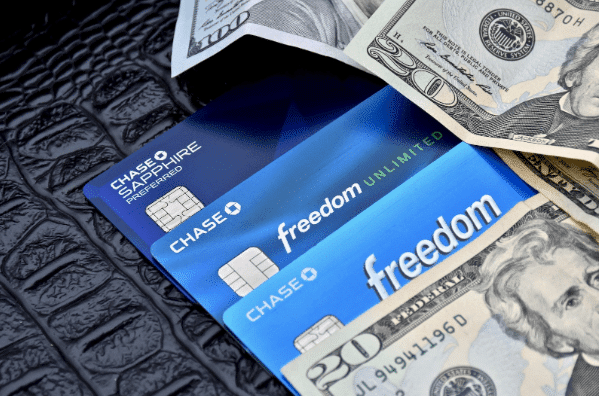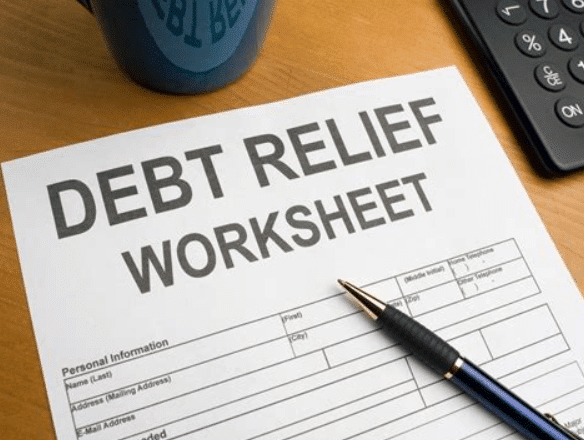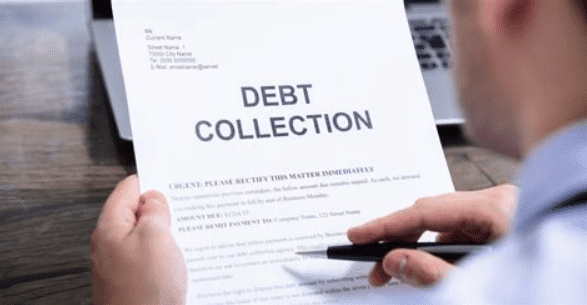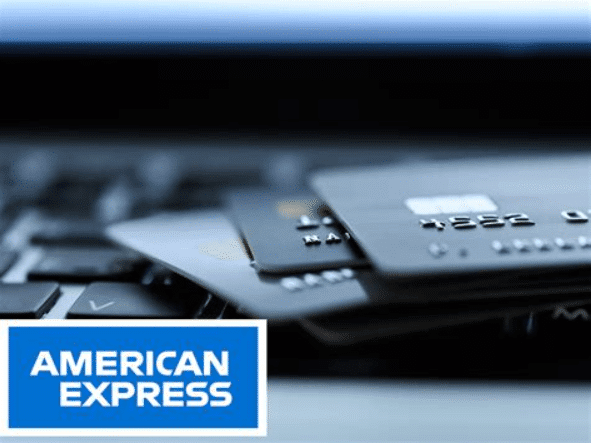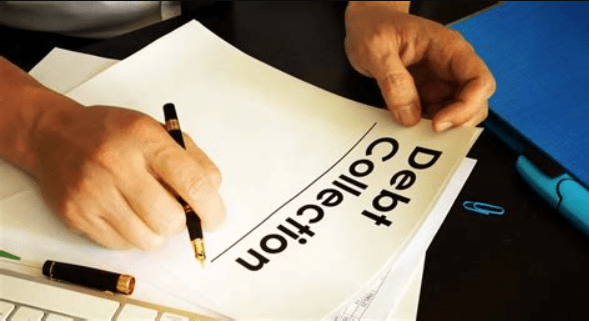If you’re facing a lawsuit from Capital One related to an old debt associated with your Synchrony Walmart Card, ZumaZip.com can provide valuable assistance in helping you navigate through this challenging situation and potentially achieve a favorable outcome.
Recently, Walmart, a prominent retail giant, terminated its longstanding partnership with Synchrony, its credit issuer for nearly two decades. This move marked a significant shift as Walmart transitioned to Capital One Financial Corp as its new credit issuer.
Walmart cited reasons such as Synchrony’s substantial revenue share and perceived contribution to losses as factors behind the termination. Conversely, Synchrony expressed frustration with Walmart’s decreased marketing efforts aimed at promoting its credit cards.
With Capital One’s acquisition of the $10 billion existing portfolio, the new credit issuer is likely to begin contacting debtors to collect outstanding credit card debts. Given the potential for increased debt collection efforts, including lawsuits, it’s essential to understand your options if you find yourself in this situation.
ZumaZip.com can offer guidance on how to effectively respond to the lawsuit and potentially secure a favorable outcome. By understanding your rights and legal options, you can navigate through this challenging situation with confidence and assertiveness.
File an Answer Promptly to Avoid Default Judgment
It’s crucial not to disregard a lawsuit from a credit card company, as failing to respond appropriately can result in severe consequences. These cases typically have a specific timeframe within which the defendant must file an answer. Failure to do so, filing late, or providing an incomplete response can lead to the court issuing a default judgment against you.
A default judgment grants the credit card company the authority to take actions such as garnishing your wages, seizing funds from your bank account, or placing a lien on your property to satisfy the debt owed. When preparing your answer, it’s essential to prioritize understanding the deadline for filing, as this varies depending on the state where the lawsuit was filed.
For instance, in Texas, debtors typically have 14 days to file an answer, unless they were served by publication, which extends the deadline to 42 days. In New York, the time frame is 20 days if served in person and 30 days for other service methods. Understanding and adhering to these timelines is critical to effectively responding to the lawsuit and protecting your rights.
The content of your answer is crucial in determining the outcome of the case. It’s essential to understand that the court’s primary concern is to ascertain whether you owe the debt to the credit card company, rather than the reasons behind your inability to pay.
Submitting an answer that includes a list of reasons why you can’t pay may inadvertently be interpreted by the court as an admission of debt. Instead, the most effective approach is to meticulously address each statement made by the credit company. Admit to those statements that are accurate and deny any assertions that are not entirely true.
For instance, if you dispute the amount owed or the creditor’s identity, you should explicitly deny these specific allegations. Avoid submitting a blanket denial of everything in the complaint; rather, provide a detailed response to each numbered section, clearly stating your position on each individual allegation. This approach ensures that your answer is comprehensive and aligns with legal standards, thereby increasing your chances of a favorable ruling.
Note:
In a civil case, such as a debt collection lawsuit, the burden of proof lies with the plaintiff—the party bringing the lawsuit. If you admit to an allegation in your answer, you essentially acknowledge that the statement is true, thereby relieving the plaintiff of the burden to prove it.
Conversely, if you deny an allegation, you’re stating that you disagree with the statement and that the plaintiff must provide evidence to support it. This places the onus back on the plaintiff to substantiate their claim in court.
Understanding this dynamic is crucial when crafting your response to the lawsuit. It’s essential to carefully consider each allegation and respond accordingly, admitting to those statements that are true and denying those that you dispute. This approach ensures that you maintain control over the narrative of the case and uphold your rights throughout the legal proceedings.
Consider the Statute of Limitations Defense
The statute of limitations serves as a crucial time limit within which a creditor can initiate legal action against a debtor. When it comes to old debts that may be acquired by entities like Capital One, understanding and asserting the statute of limitations can be a valid defense strategy.
The statute of limitations varies depending on the state and the type of debt involved. For instance, in New York, the statute of limitations for credit card debts is generally six years. However, recent court decisions have established that for certain credit card debts, this period may be as short as three years.
If your last payment on the credit card debt occurred over three years ago, you may have grounds for invoking the statute of limitations as a defense. It’s crucial to seek legal advice or conduct thorough research to ascertain the validity of this defense in your specific circumstances. If applicable, you should bring this defense to the court’s attention by including it as an affirmative defense in your answer.
Since lawsuit documents often do not indicate the age of the debt, it’s up to you to inform the court of this fact by filing an answer and clearly stating your defenses. By doing so, you ensure that the court is aware of relevant information that could impact the outcome of the case.
Challenge Capital One’s Right to Collect the Debt
When facing a lawsuit from a debt buyer like Capital One, challenging their legal standing is often a viable approach. Since you didn’t directly enter into a contractual agreement with the debt buyer, you have the right to question their ownership of the debt.
The burden of proof lies with the plaintiff to demonstrate that they legally own your specific debt. Merely possessing an assignment letter may not suffice; Capital One must provide compelling evidence of ownership tailored to your case.
This defense becomes even more potent when the plaintiff is a debt buyer rather than a debt collector. In such instances, Capital One may lack the necessary licensing to engage in debt collection activities, especially in states like New York where licensing requirements are stringent.
Conducting a quick license check on the Department of Consumer Affairs website can reveal whether the debt buyer is licensed to collect debts in your state. If they’re not, you have grounds to request dismissal of the case, as they lack the legal authority to pursue the debt.
By leveraging this defense, you assert your rights and compel the plaintiff to provide indisputable evidence of ownership, potentially leading to a favorable outcome for you in court.
Use These Other Effective Defenses
Any of these defenses can help you get a case dismissed or negotiate a lower settlement. It can also help if you consult a defense lawyer to ensure you understand your defenses and those most suitable for your situation.
- You Already Paid the Credit Card Debt. This is a valid defense if you’ve paid the debt in part or in full and you believe the credit card company hasn’t credited your account. Be sure to carry proof of payment, and if it is verified as true, the judge may dismiss the case.
- You’ve Filed for Bankruptcy. If you’ve declared bankruptcy and the credit card debt is one of the debts that was discharged, you don’t owe it anymore. It is an absolute defense to a debt collection suit.
- You’re Only an Authorized User. This defense applies if the debtor is sued for a card they shared with another person. The premise for this defense hinges on the difference between an authorized user and a cosigner. If the other person permits you to use the card and you never agreed to be responsible for debt payment, then you’re only an authorized user.
When it comes to credit card debt, the legal responsibility depends on the type of arrangement you have with the credit card issuer. If you’re simply an authorized user on the credit card, you typically cannot be held liable for the debt incurred. However, if you’ve cosigned or jointly agreed to be responsible for the credit card, you share equal responsibility for the debt, regardless of who made the charges. It’s essential to understand the terms of your agreement with the credit card issuer to determine your liability in such situations.
What is ZumaZip?
ZumaZip is a convenient solution designed to streamline your response to a debt collection lawsuit. Here’s a breakdown of what you can expect when you use ZumaZip:
Firstly, you’ll access our user-friendly web application, which guides you through the process step by step. You’ll be prompted to answer a series of questions related to your specific situation. Once you’ve completed the questionnaire, you have the option to either print out the finalized forms and mail them to the appropriate courts yourself, or you can opt to utilize ZumaZip’s services to file them on your behalf. Additionally, if you choose this option, an attorney will review your document for added peace of mind.
If you’re seeking guidance on how to effectively respond to a debt collection lawsuit, ZumaZip can provide the assistance you need. Feel free to explore our FAQs for more information on what ZumaZip has to offer.
What if I haven’t been sued yet?
If you’ve only received a collections notice, but not a lawsuit, the best way to respond is with a Debt Validation Letter. When a debt collector contacts you in any way, whether it’s by phone or mail, you can respond by formally requesting a debt validation with a Debt Validation Letter . This letter notifies the collector that you dispute the debt and forces them to provide proof you owe the debt. They can’t call you or continue collecting until they provide validation of the debt. This flowchart shows how you can use a Debt Validation Letter to win.
Get started with a Debt Validation Letter here.
How to Answer a Summons for debt collection in all 50 states
Here’s a list of guides on how to respond to a debt collection lawsuit in each state:
- Alabama
- Alaska
- Arizona
- Arkansas
- California
- Colorado
- Connecticut
- Delaware
- Florida
- Georgia
- Hawaii
- Idaho
- Illinois
- Indiana
- Iowa
- Kansas
- Kentucky
- Louisiana
- Maine
- Maryland
- Massachusetts
- Michigan
- Minnesota
- Mississippi
- Missouri
- Montana
- Nebraska
- Nevada
- New Hampshire
- New Jersey
- New Mexico
- New York
- North Carolina
- North Dakota
- Ohio
- Oklahoma
- Oregon
- Pennsylvania
- Rhode Island
- South Carolina
- South Dakota
- Tennessee
- Texas
- Utah
- Vermont; Vermont (Small Claims court)
- Virginia
- Washington
- West Virginia
- Wisconsin
- Wyoming
Guides on how to beat every debt collector
Hey there! Facing off against a debt collector can feel like a daunting challenge, but fear not! We’re here to help you navigate through it all with our handy guides designed to assist you in beating every debt collector you encounter. Whether you’re facing a new lawsuit or dealing with a persistent collector, we’ve got your back. Stay positive, stay informed, and let’s tackle this together!
- Absolute Resolutions Investments LLC
- Accredited Collection Services
- Alliance One
- Amcol Clmbia
- American Recovery Service
- Asset Acceptance LLC
- Asset Recovery Solutions
- Associated Credit Services
- Autovest LLC
- Cach LLC
- Cavalry SPV I LLC
- Cerastes LLC
- Colinfobur
- Covington Credit
- Crown Asset Management
- CTC Debt Collector
- Cypress Financial Recoveries
- Delanor Kemper & Associates
- Eagle Loan of Ohio
- Educap
- Estate Information Services
- FIA Card Services
- Forster & Garbus
- Freshview Solutions
- Fulton Friedman & Gullace LLP
- Harvest Credit Management
- Howard Lee Schiff
- Hudson & Keyse LLC
- Integras Capital Recovery LLC
- Javitch Block
- Jefferson Capital Systems LLC
- LVNV Funding
- Mannbracken
- Mariner Finance
- Medicredit
- Michael J Adams PC
- Michael J Scott
- Midland Funding LLC
- Mullooly, Jeffrey, Rooney & Flynn
- Mountain Land Collections
- MRS Associates
- National Collegiate Trust
- Nationstar Foreclosure
- Northstar Capital Acquisition
- NCEP LLC
- NRC Collection Agency
- OneMain Financial
- Palisades Collection LLC
- Pallida LLC
- Paragon Revenue Group
- Pinnacle Collections Agency
- PMAB LLC
- Portfolio Recovery Associates
- Provest Law
- PYOD LLC
- Reunion Student Loan Finance Corporation
- Revenue Group
- Regents and Associates
- RSIEH
- Salander Enterprises LLC
- Second Round Sub LLC
- Security Credit Services
- Sherman Financial Group
- Suttell and Hammer
- T-Mobile
- Transworld Systems
- Tulsa Teachers Credit Union
- UCB Collection
- Velo Law Office
- Velocity Investments
- Waypoint Resource Group
- Weinberg and Associates
- Wolpoff & Abramson
Settle your medical debt
Having a health challenge is stressful, but dealing medical debt on top of it is overwhelming. Here are some resources on how to manage medical debt.
- Am I Responsible for My Spouse’s Medical Debt?
- Do I Need a Lawyer for Medical Bills?
- Do I Need a Lawyer to Fight Medical Bill Debt?
- Does Bankruptcy Clear Medical Debt?
- How Much Do Collection Agencies Pay for Medical Debt?
- How to Find Medical Debt Forgiveness Programs
- Is There a Statute of Limitations on Medical Bills?
- Medical Debt Statute of Limitations by State
- Summoned to Court for Medical Bills — What Do I Do?
- Summoned to Court for Medical Bills? What to Do Next
Stop calls from Debt Collectors
Do you keep getting calls from an unknown number, only to realize that it’s a debt collector on the other line? If you’ve been called by any of the following numbers, chances are you have collectors coming after you, and we’ll tell you how to stop them.
- 800-390-7584
- 800-289-8004
- 800-955-6600
- 877-366-0169
- 877-591-0747
- 800-278-2420
- 800-604-0064
- 800-846-6406
- 877-317-0948
- 888-899-4332
- 888-912-7925
- 202-367-9070
- 502-267-7522
Other wage garnishment resources
- Bank Account Garnishment and Liens in Texas
- Can I Stop Wage Garnishment?
- Can My Wife’s Bank Account Be Garnished for My Debt?
- Can Payday Loans Garnish Your Wages?
- Can pensions be garnished?
- Can Private Disability Payments Be Garnished?
- Can Social Security Disability Be Garnished?
- Can They Garnish Your Wages for Credit Card Debt?
- Can You Stop a Garnishment Once It Starts?
- Guide to Garnishment Limits by State
- How Can I Stop Wage Garnishments Immediately?
- How Long Before a Creditor Can Garnish Wages?
- How Long Does It Take to Get Garnished Wages Back?
- How to Fight a Wage Garnishment
- How to Prevent Wage Garnishment
- How to Stop a Garnishment
- How to Stop Social Security Wage Garnishment
- How to Stop Wage Garnishment — Everything You Need to Know
- New York Garnishment Laws – Overview
- Ohio Garnishment Laws — What They Say
- Wage Garnishment Lawyer
- What Is Wage Garnishment?
Guides on Arbitration
If the thought of going to court stresses you out, you’re not alone. Many Americans who are sued for credit card debt utilize a Motion to Compel Arbitration to push their case out of court and into arbitration.
Below are some resources on how to use an arbitration clause to your advantage and win a debt lawsuit.
- How Arbitration Works
- How to Find an Arbitration Clause in Your Credit Agreement
- How to Make a Motion to Compel Arbitration
- How to Make a Motion to Compel Arbitration in Florida
- How to Make a Motion to Compel Arbitration Without an Attorney
- How Credit Card Arbitration Works
- Motion to Compel Arbitration in California
- Sample Motion to Compel Arbitration
Federal Debt Collection Laws Can Protect You
Knowing your rights makes it easier to stand up for your rights. Below, we’ve compiled all our articles on federal debt collection laws that protect you from unfair practices.
- 15 USC 1692 Explained
- Does the Fair Credit Reporting Act Work in Florida?
- FDCPA Violations List
- How to File an FDCPA Complaint Against Your Debt Collector (Ultimate Guide)
- How to Make a Fair Debt Collection Practices Act Demand Letter
- How to Submit a Transunion Dispute
- How to Submit an Equifax Dispute
- How to Submit an Experian Dispute
- What Debt Collectors Cannot Do — FDCPA Explained
- What Does Account Information Disputed by Consumer Meets FCRA Requirements Mean?
- What does “meets FCRA requirements” mean?
- What does FCRA stand for?
- What is the Consumer Credit Protection Act
Resolve Your Debt with Your Creditor
Some creditors, banks, and lenders have an internal collections department. If they come after you for a debt, ZumaZip can still help you respond and resolve the debt. Here’s a list of guides on how to resolve debt with different creditors.
- American Express; American Express – Debt Collection
- Bank of America
- Barclay
- Best Buy Credit Card
- Capital One
- Chase
- Credit One Bank
- Old Navy Credit Card
- PayPal Synchrony Card
- Regional Finance
- Retailers National Bank
- Reunion Student Loan Finance Corporation
- SYNCB/PPEXTR
- Synchrony Bank
- Synchrony Walmart Card
- Target National Bank
- Webbank
- Wells Fargo
- Can I Pay My Original Creditor Instead of a Debt Collection Agency?
- Can I Settle a Debt with the Original Creditor?
Check the Status of Your Court Case
Don’t have time to go to your local courthouse to check the status of your case? We’ve created a guide on how to check the status of your case in every state, complete with online search tools and court directories.
- Alabama Court Case Search—Find Your Lawsuit
- Alaska Court Case Search — Find Your Lawsuit
- Arizona Court Case Search – Find Your Lawsuit
- Arkansas Court Case Search — Find Your Lawsuit
- California Court Case Search- Find Your Lawsuit
- Colorado Court Case Search — Find Your Lawsuit
- Connecticut Case Lookup — Find Your Court Case
- Delaware Court Case Search — Find Your Lawsuit
- Florida Court Case Search — Find Your Lawsuit
- Georgia Court Case Search — Find Your Lawsuit
- Hawaii Court Case Search — Find Your Lawsuit
- Idaho Court Case Search – Find Your Lawsuit
- Illinois Court Case Search — Find Your Lawsuit
- Indiana Court Case Search — Find Your Lawsuit
- Iowa Court Case Search — Find Your Lawsuit
- Kansas Court Case Search — Find Your Lawsuit
- Kentucky Court Case Search — Find Your Lawsuit
- Louisiana Court Case Search — Find Your Lawsuit
- Maine Court Case Search — Find Your Lawsuit
- Maryland Court Case Search — Find Your Lawsuit
- Massachusetts Court Case Search — Find Your Lawsuit
- Michigan Court Case Search — Find Your Lawsuit
- Minnesota Court Case Search — Find Your Lawsuit
- Mississippi Court Case Search — Find Your Lawsuit
- Missouri Court Case Search — Find Your Lawsuit
- Montana Court Case Search — Find Your Lawsuit
- Nebraska Court Case Search — Find Your Lawsuit
- Nevada Court Case Search — Find Your Lawsuit
- New Hampshire Court Case Search — Find Your Lawsuit
- New Jersey Court Case Search—Find Your Lawsuit
- New Mexico Court Case Search – Find Your Lawsuit
- New York Case Search — Find Your Lawsuit
- North Carolina Court Case Search — Find Your Lawsuit
- North Dakota Court Case Search — Find Your Lawsuit
- Ohio Court Case Search — Find Your Lawsuit
- Oklahoma Court Case Search — Find Your Lawsuit
- Oregon Court Case Search — Find Your Lawsuit
- Pennsylvania Court Case Search — Find Your Lawsuit
- Rhode Island Court Case Search — Find Your Lawsuit
- South Carolina Court Case Search — Find Your Lawsuit
- South Dakota Court Case Search — Find Your Lawsuit
- Tennessee Court Case Search — Find Your Lawsuit
- Texas Court Case Search — Find Your Lawsuit
- Utah Court Case Search — Find Your Lawsuit
- Vermont Court Case Search — Find Your Lawsuit
- Virginia Court Case Search — Find Your Lawsuit
- Washington Court Case Search — Find Your Lawsuit
- West Virginia Court Case Search — Find Your Lawsuit
- Wisconsin Court Case Search — Find Your Lawsuit
- Wyoming Court Case Search — Find Your Lawsuit

























